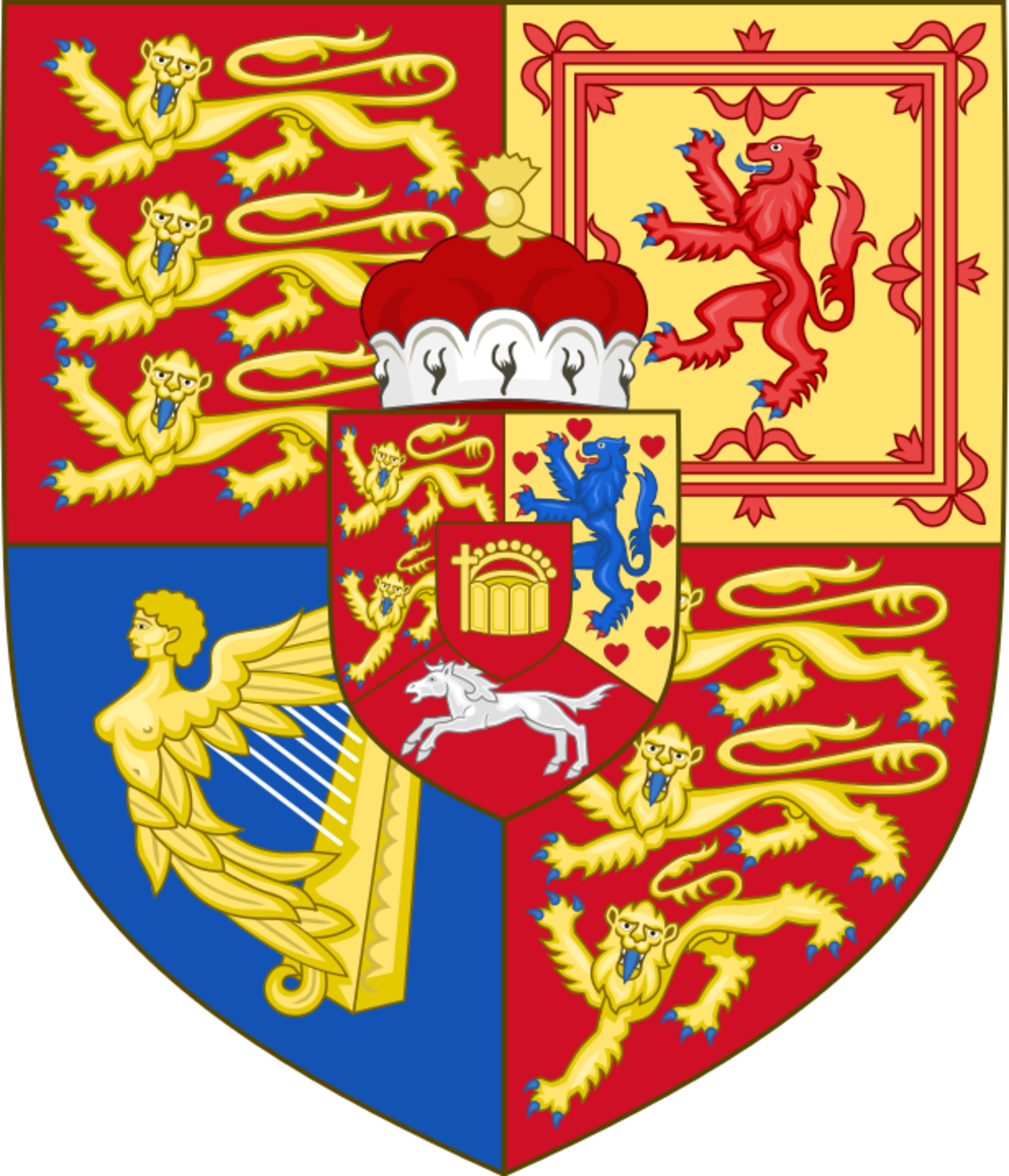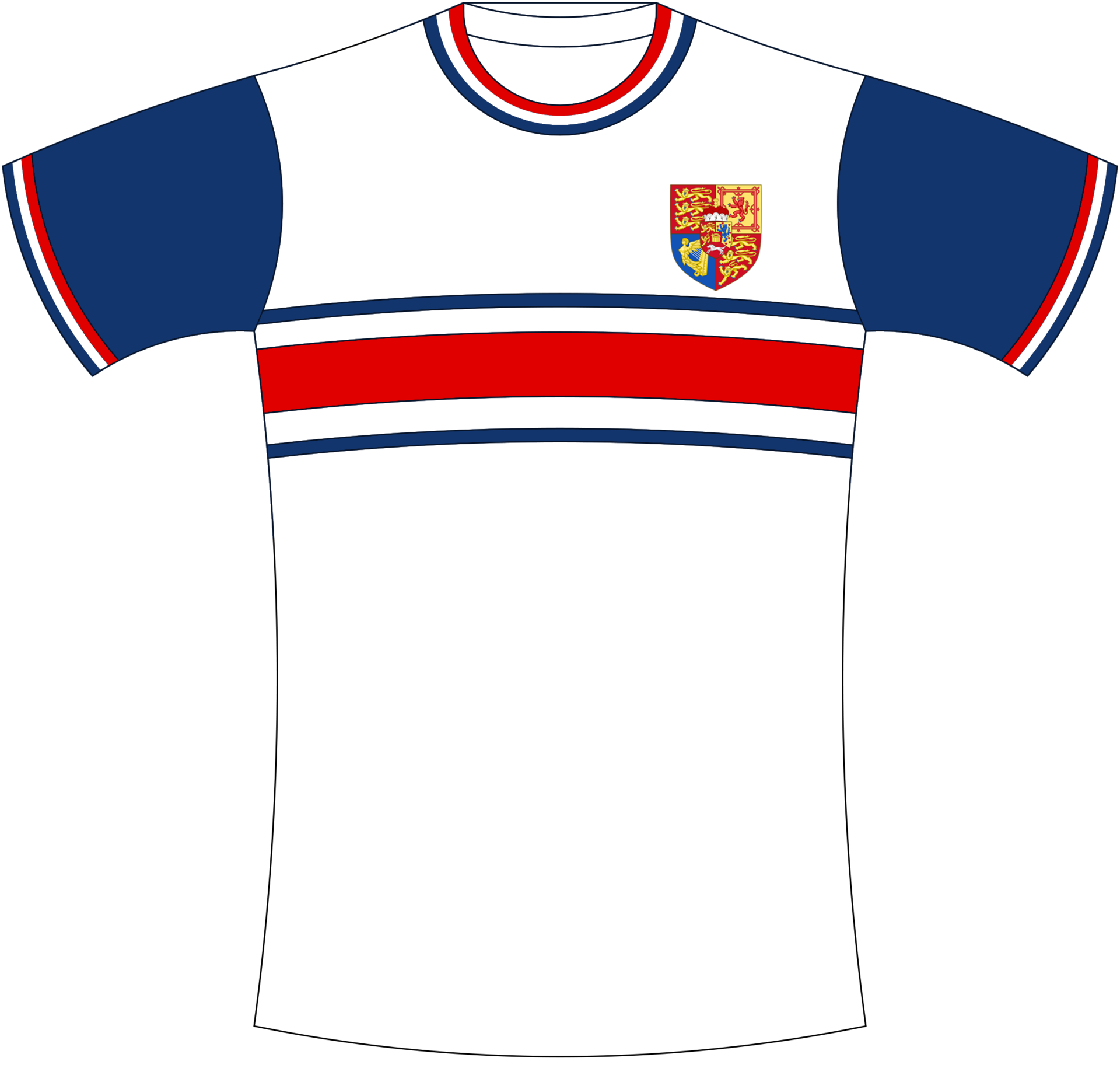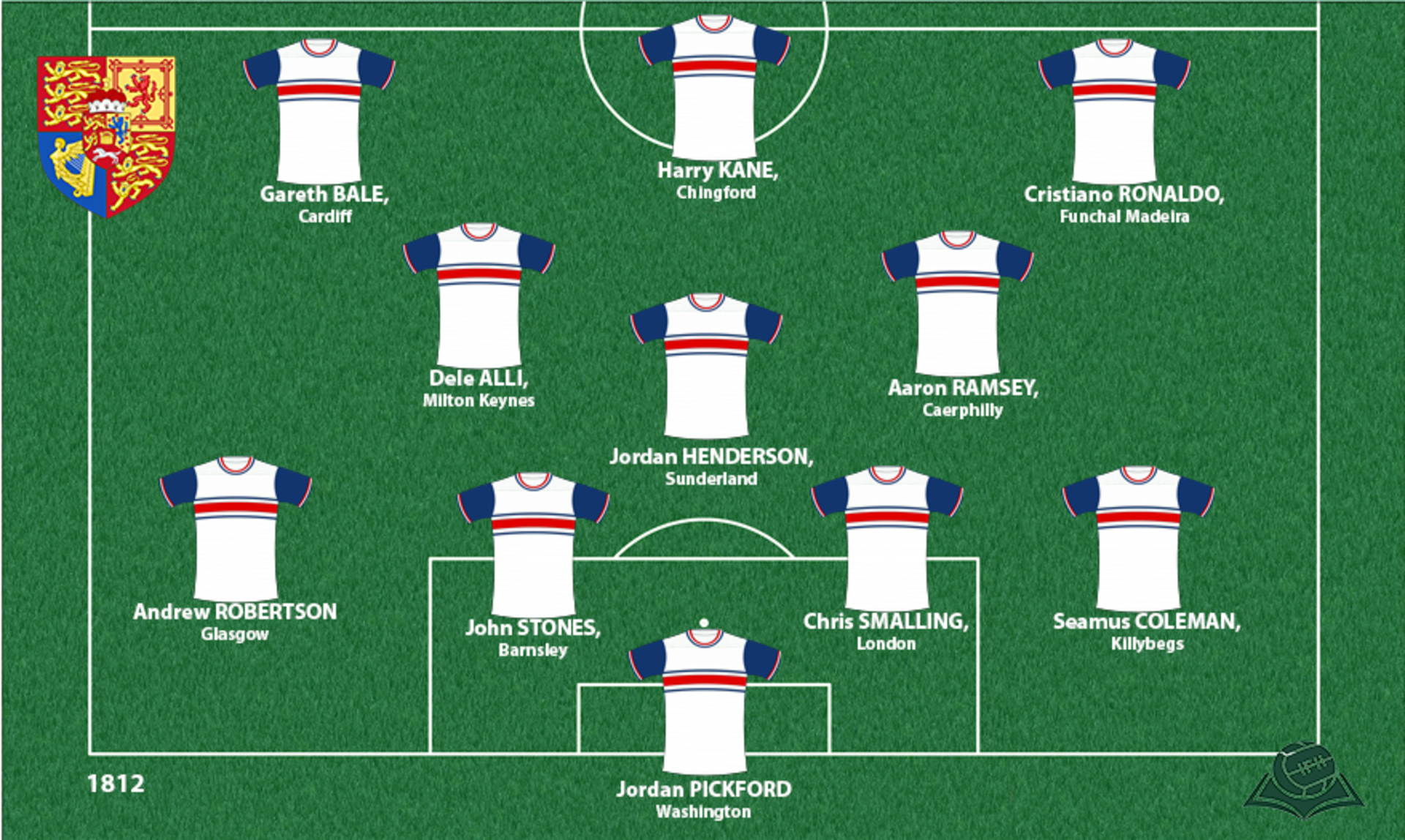British Empire
Although in the UK the "will of the people" (ie, aristocrats), through Parliament, restricted the king's powers and, as such, served as an ideal example for the revolutionary-inspired French philosophers, she was the main builder of anti-French coalitions.

Coat of arms

Shirt
| Position | First name | Last name | Mjesto rođenja | Like | Dislike | |
|---|---|---|---|---|---|---|
| GK | Joe | HART | Shrewsbury |
14 |
6 |
|
| GK | Jordan | PICKFORD | Washington |
28 |
9 |
|
| DC | Chris | SMALLING | London |
6 |
9 |
|
| DC | Gary | CAHILL | Dronfield |
8 |
3 |
|
| DRC | John | STONES | Barnsley |
19 |
1 |
|
| DR/MR | Kieran | TRIPPIER | Bury |
12 |
1 |
|
| DR/MR | Kyle | WALKER | Sheffield |
17 |
3 |
|
| DR/MR | Seamus | COLEMAN | Killybegs |
6 |
7 |
|
| DL | Andrew | ROBERTSON | Glasgow |
19 |
0 |
|
| DL | Danny | ROSE | Doncaster |
10 |
4 |
|
| DL | Luke | SHAW | Kingston upon Thames |
13 |
3 |
|
| DRC/DMC | Eric | DIER | Cheltenham |
18 |
3 |
|
| DRC/DMC | Phil | JONES | Preston |
7 |
1 |
|
| DMC | Jordan | HENDERSON | Sunderland |
23 |
6 |
|
| MC | Jack | WILSHERE | Stevenage |
8 |
8 |
|
| MRLC | Aaron | RAMSEY | Aaron |
14 |
0 |
|
| AMC | Adam | LALLANA | St.Albans |
11 |
11 |
|
| AMC | Dele | ALLI | Milton Keynes |
22 |
8 |
|
| AMC | Ross | BARKLEY | Liverpool |
6 |
3 |
|
| AMRLC | Alex | OXLADE-CHAMBERLAIN | Portsmouth |
12 |
1 |
|
| AMRL | Gareth | BALE | Cardiff |
22 |
2 |
|
| AMRL | Raheem | STERLING | Kingston |
14 |
2 |
|
| AMR/DR | Michail | ANTONIO | London |
5 |
3 |
|
| SS/FRLC | Wayne | ROONEY | Liverpool |
21 |
5 |
|
| FRLC | Cristiano | RONALDO | Funchal Madeira |
10 |
0 |
|
| FRLC | Daniel | STURRIDGE | Birmingham |
15 |
4 |
|
| FRLC | Danny | WELBECK | Manchester |
6 |
2 |
|
| FRLC | Marcus | RASHFORD | Manchester |
19 |
3 |
|
| FC | Harry | KANE | Chingford |
20 |
4 |
|
| FC | Jamie | VARDY | Sheffield |
14 |
3 |
In addition to seeking to remove its main rival in the colonies and overseas markets, the ruling class of aristocrats in Britain feared spreading revolutionary ideas to British industrial workers, which might endanger their rule in the country. Britain survived, in particular, through a series of naval victories, culminating in the triumph of Horatio Nelson at Trafalgar (1805). Also, by radicalizing Irish discontent, the Revolution created the possibility for the Irish rebellion against the London authorities to gain outside support. Therefore, with the Union Act (1800), which established the United Kingdom of Great Britain and Ireland, it decided to somewhat improve the legal position of Irish Catholics.
At the same time, the anti-Catholicism of the Revolution made Catholicism acceptable in Britain. More importantly, an Empire like the British could not allow itself to be discriminated against in religious matters. The British emphasis was on the wars against France and the creation of the Empires, but also for the sake of unity in the country, because the English could not have expected the Scots to see themselves as English. 'British' and 'Britain', it will never push out existing national identities. However, for the Welsh, long regarded as part of England, the emphasis on Britain was welcome, while for the Scots, the benefits of belonging to Britain made it possible to participate in Parliament and to partner with the growing empire.
Sources
- Jeremy BLACK, Povijest Britanskih otoka, Zagreb, 2004.
- Adrian HASTINGS, Gradnja nacionaliteta , Rijeka, 2003.
- Eric John HOBSBAWM, Doba revolucije: Europa 1789-1848, Zagreb, 1987.
